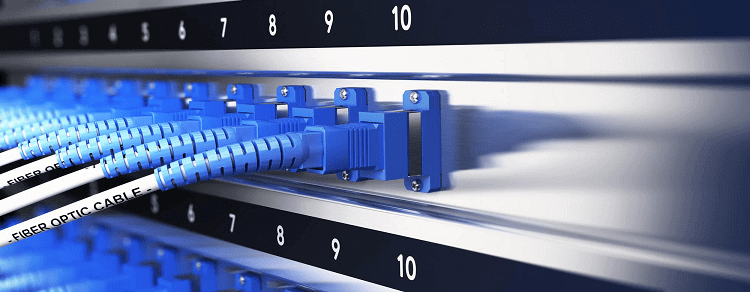
Chapter 1: Cisco Hardware Devices
The Cisco Certified Network Associates (CCNA) certification program was developed to help individuals gain knowledge and skills necessary to support the design, installation, operation, maintenance, and troubleshooting of local area networks (LANs), wide area networks (WANs), and campus area networks (CANs).
In this blog we will discuss wide range of topics as per given table of contents.
Table of contents
1. What is CCNA?
2. What to learn in CCNA?
3. Why Cisco CCNA?
4. Is CCNA is worth for?
5. Who are eligible for CCNA certification course?
6. Which exam is required to pass to be a CCNA certified professionals?
7. How much CCNA exam cost?
8. How to prepare for CCNA certification?
9. Will I get job after CCNA?
10. How much salary expected for CCNA professionals?
11. What should I do after CCNA course?
12. What is the duration of this course?
1. What is CCNA?
CCNA is the certification program offered by Cisco and known as entry level certification in IT networking industry. The CCNA is meant to verify your understanding of the basic networking concepts that are frequently required in networking responsibilities in IT positions. It prepares you for networking job roles in IT industry such as network engineer, network specialist, network expert.
The Cisco Certified Network Associate (CCNA) is a professional-level certification in the field of networking. It is offered by Cisco Systems, a leading provider of networking hardware, software, and services.
To become a CCNA, individuals must pass a certification exam that covers a range of networking concepts and technologies, including:
Networking fundamentals
LAN (Local Area Network) and WAN (Wide Area Network) technologies
Network security
IP connectivity and IP services
Routing and switching technologies
Network troubleshooting and maintenance
Network automation and programmability
CCNA certification is designed to provide basic level of networking knowledge and skills. It is also known as first step towards the advanced certifications such as the Cisco Certified Network Professional (CCNP) or the Cisco Certified Internetwork Expert (CCIE).
CCNA certification provides skills and knowledge to setup, manage, fix and troubleshoot small to medium level networks. This is known as starting level certification for network professionals and provides the opportunity to choose right domain for your next step certification. After CCNA certification you can go for security, enterprise, data center, collaboration and wireless domains.
Holding a CCNA certification can demonstrate to potential employers that you have the knowledge and skills to design, implement, and maintain networking solutions using Cisco technologies. It is often sought after by individuals looking to enter or advance in the field of networking.
2. What to learn in CCNA?
CCNA certification covers wide area of course syllabus. The CCNA certification course gives the strong foundation of networking that can take anyone career in any direction. The topics you will cover in CCNA syllabus are given below:
Network Fundamentals
Network Access
IP Connectivity
IP Services
Security Fundamentals
Automation and Programmability
The CCNA syllabus starts from network fundamentals that will tell you the different types of components used in a network with their roles and function details. And then followed by other course topics with detailed lectures and lab practical.
Network Fundamentals:
This CCNA course topic will include all the fundamentals skills and knowledge required to setup an small to medium size networks. Such as components of networks and their roles, topology designs of networks, different types of physical devices and cabling types, identification of cable and interface issues, TCP to UDP comparison, IPv4 and IPv6 addressing and subnetting configuration and verification, need of IPv4 and IPv6 addressing, wireless principles, virtualization, and switching concepts.
Network Access:
The network access topic will cover VLAN configuration and verification, interswitch connectivity configuration and verification, layer 2 discovery protocols configuration and verification, ether channel configuration and verification, need for spanning tree protocol and their operations, Cisco wireless architecture, WLAN components, AP and WLC management access connections.
IP Connectivity:
IP connectivity topic will cover components of routing table, how a router makes a forwarding decision, IPv4 and Ipv6 static routing configuration and verification, OSPFv2 configuration and verification, and first hop redundancy protocol purpose.
IP Services:
The IP services course topic will cover configuration and verification of NAT, NTP operating, the roles of DHCP and DNS in a network, SNMP functions, use of syslog features, configuration and verification of DHCP client, configuration of network devices for remote access, and function of FTP in the network.
Security Fundamentals:
This course topic will cover security concepts, security program elements, device access control configuration, security password policies elements, remote access, site-to-site VPNs, access control list configuration and verification, layer 2 security features configuration, wireless security protocols and WLAN configuration.
Automation and Programmability:
The topic will cover automation impacts on network management, controller based networking, and JSON encoded data overview.
3. Why Cisco CCNA?
Cisco CCNA known as foundation level certification from Cisco that makes your foundation very strong that can take your career in any direction. It is also known as first step in preparing for a career in IT technologies. The CCNA course syllabus covers wide range of fundamentals for IT careers based on the latest technologies, networking security, automation and programmability. It provide wide range of networking skills and knowledge based on current required skills and job roles.
Cisco CCNA certified people are living proof of the standards and organizations recognize your certification value. It provide deep understanding of routing, switching, network access, IP services, IP connectivity, security, automation and programmability fundamentals.
So in the sort you can say that your CCNA certification is your proof of qualification, you are part of unique list of certified people, it provide career advancement, it is basis of other certification, it tells the employer that you have required skills and knowledge they required.
4. Is CCNA is worth for?
This is the edge of cloud and virtualization, so this question may arise in your mind. To prove the worthiness of CCNA certification you can check the various parameters as given below:
Still this is known as first step certification towards IT technology career – The Cisco CCNA is the basic level foundational course provides routing and switching, subnetting, IP services, IP addressing, network security, OSI model skills and knowledge. This CCNA certification is not avoidable before entering in IT networking career. These skills and knowledge is required to be a professional network engineer, cloud engineer, network specialist or Cybersecurity specialist.
Job opportunities after CCNA – There are tons of job opportunities available in IT technology for CCNA certified professionals. The certified people may apply for technical support engineer, help desk engineer, system engineer, network administrator, IT manager, senior network engineer, network security engineer, and network security specialist.
When you search for job roles for CCNA certified people you find that organizations are interested to hire those people.
Attractive salary – CCNA certification also give the opportunity to get attractive salary. As a network engineer you can get upto 6 lacs per year.
Globally accepted certification – CCNA is the globally accepted certification. Its reputation is very much high in IT technology industry. It proves your skills in networking.
Various career path – CCNA certification not only open opportunity for networking career but it opens doors for multiple career paths such as cloud computing, cybersecurity, defense, space, virtualization, etc.
5. Who are eligible for CCNA certification course?
This is the common question related to CCNA certification. There are no formal prerequisite for CCNA certification. You are eligible for CCNA certification exam if you are fresh graduate from any stream. But if you have one or more years of experience in implementing Cisco solutions then this will better than non experienced.
6. Which exam is required to pass to be a CCNA certified professionals?
You must pass the Cisco CCNA 200-301 test to earn the CCNA (Cisco Certified Network Associate) certification. Network fundamentals, LAN switching technologies, security fundamentals, routing technologies, WAN technologies, and network services are just a few of the subjects that are covered in the Cisco CCNA test.
The 200-301 CCNA test has a 120-minute time limit and is proctored online. It has between 100 and 120 multiple-choice questions. You need to get at least 825 out of 1000 to pass the test.
7. How much CCNA exam cost?
The cost of the Cisco 200-301 CCNA exam varies depending on your location and the delivery method you choose. As of 2023, the exam cost is as follows:
In the United States: $300 USD
In India: $300 USD
In other countries: The exam cost may be different depending on the local currency exchange rate. You can check the current exam cost in your country by visiting the Cisco Certification Exam Pricing page and selecting your country from the dropdown menu.
There may also be additional fees for scheduling the exam, rescheduling or canceling the exam, or taking the exam at a testing center rather than online.
It’s worth noting that the cost of the CCNA exam is just one part of the overall cost of obtaining the CCNA certification. You may also need to invest in study materials, training courses, or other resources to prepare for the exam.
8. How to prepare for CCNA certification?
There are a number of steps you can take to prepare for the Cisco CCNA certification exam:
Familiarize yourself with the exam content and format: The CCNA exam covers a wide range of topics related to networking, including network fundamentals, LAN switching technologies, IP services, routing technologies, WAN technologies, network security and network services. You can find more information about the exam content and format on the Cisco CCNA certification page.
Use official Cisco training resources: Cisco offers a range of training resources to help you prepare for the CCNA exam. These resources are instructor-led courses, e-learning courses, and self-study materials. All these Cisco resources are designed to provide a comprehensive overview of the exam content and help you develop the knowledge and skills you need to pass the exam.
Practice with hands-on exercises: Hands-on experience is an important part of preparing for the CCNA 200-301 exam. You can practice your skills by setting up a lab environment and working through exercises and and lab tasks. There are many online resources also, such as practice exams and simulations, that you can use to test your knowledge and prepare for the exam.
Use third-party study materials: In addition to official Cisco resources, there are many third-party study materials, such as books, training videos, practice exams, and study guides, that can help you prepare for the CCNA exam. These materials can provide additional practice questions and resources to help you understand the exam content.
Overall, the key to preparing for the 200-301 CCNA exam is to be consistent and disciplined in your studies. By setting aside dedicated time to study and practice, and using a variety of resources to help you learn, you can increase your chances of success on the exam.
9. Will I get job after CCNA?
Obtaining a CCNA (Cisco Certified Network Associate) certification can improve your job prospects and help you find employment in the field of networking. Employers often look for candidates with industry-recognized certifications such as CCNA, as it demonstrates a level of proficiency and knowledge in networking technologies.
However, it is important to note that obtaining a CCNA certification alone does not guarantee employment. There are many factors that can influence your job prospects, including your level of experience, education, and other skills and qualifications. In addition, the job market can fluctuate and it is always important to continuously update your skills and knowledge to remain competitive.
It is also a good idea to have a solid understanding of networking concepts and technologies beyond what is covered in the CCNA certification. This can help you stand out to potential employers and increase your chances of finding a job in the field.
10. How much salary expected for CCNA professionals?
The salary for a CCNA (Cisco Certified Network Associate) professional can vary depending on a number of factors, including your level of experience, the industry in which you work, and the location of your job. In general, CCNA professionals can expect to earn a median salary of around 3-5 lacs per year, according to the data from various job portals.
However, it is important to note that this is just a rough estimate and actual salaries may vary significantly. Some CCNA professionals may earn more or less than this amount depending on their specific job duties and responsibilities, as well as their employer and location.
11. What should I do after CCNA course?
You can undertake a number of things to advance your networking career after passing a CCNA (Cisco Certified Network Associate) course, including:
Gain practical experience: The CCNA course offers a strong foundation in networking principles and technologies, but it’s also crucial to gain practical experience to advance your knowledge and skills. To obtain practical experience, look at internships or entry-level networking roles.
Think about getting more certifications: You can further your networking profession by earning numerous other industry-recognized certifications, such the CCNP (Cisco Certified Network Professional) or the CCIE (Cisco Certified Internetwork Expert). These certificates can make you stand out to potential employers and often involve additional study and testing.
Keep up with industry trends: Since networking is a subject that is continuously changing, it is crucial to keep up with the newest innovations. To stay up to date, think about subscribing to industry periodicals, going to conferences or webinars, and enrolling in additional courses.
Network and build professional relationships: Connect with others in the industry through networking and professional partnerships to learn about new job openings and stay up to date on the latest developments. To meet and network with other professionals, think about joining professional organizations or networking groups and attending industry events.
Seek out career advancement opportunities: Once you have gained some experience and developed your skills, you may be ready to take on more responsibility or seek out leadership roles. Consider looking for opportunities to advance your career within your current organization, or consider exploring job opportunities at other companies.
12. What is the duration of this course?
Depending on the particular program you are enrolled in and how much time you have available for study, the length of a CCNA (Cisco Certified Network Associate) course can change. Generally speaking, a CCNA course can be finished in a few weeks to many months.
You can study at a speed that suits you because the majority of CCNA courses are meant to be taken at your own leisure. While some courses are totally self-paced and allow you to work at your own pace, others may provide online or in-person classrooms that meet at set hours.
In addition to the coursework, you will also need to pass a certification exam to become a CCNA. The exam typically consists of around 100-120 multiple-choice questions and takes about 120 minutes to complete. You may need to schedule the exam separately, and it may take several weeks or months to prepare for it depending on your level of experience and familiarity with the material.
Hope this blog will help you to know about CCNA certification.
Comments (0)
Categories
Popular posts

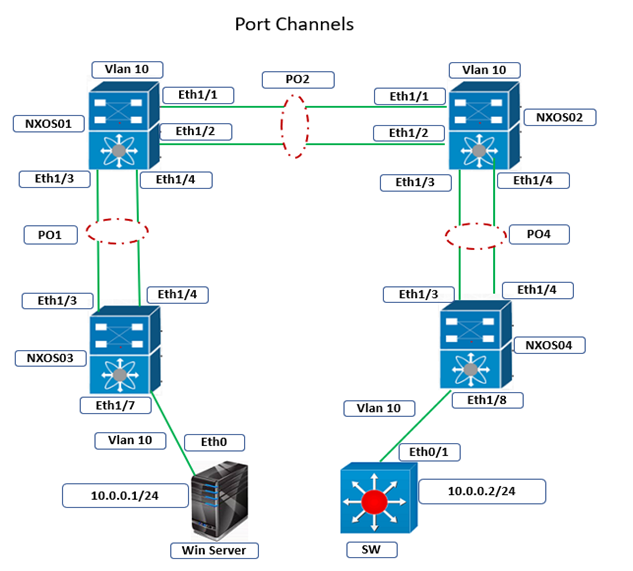
Cisco Nexus Port Channel: Configuring ...
4 Apr 2024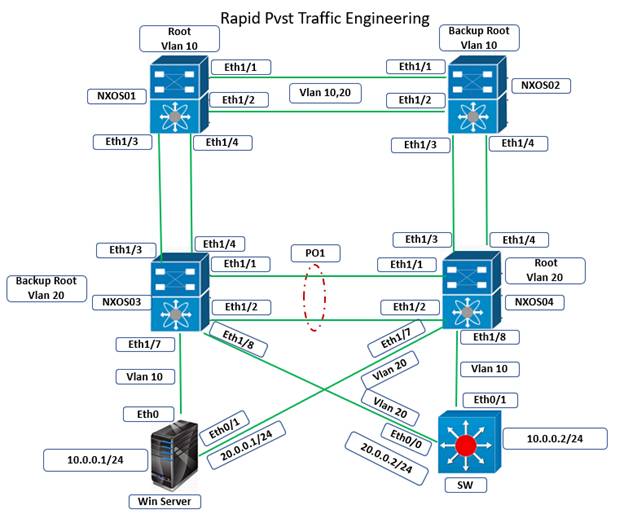
Configure Rapid PVST on Cisco Nexus
5 Apr 2024
Palo Alto Exam Cost: PCNSA, PCNSE & More
28 Mar 2024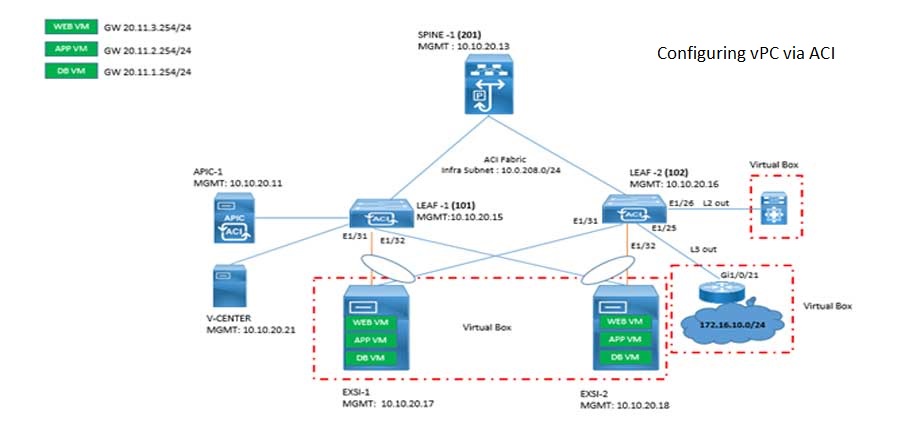
Cisco ACI VPC Configuration Task Steps
6 Jan 2024Recent posts

AWS Certification Path: Amazon Cloud
18 Apr 2024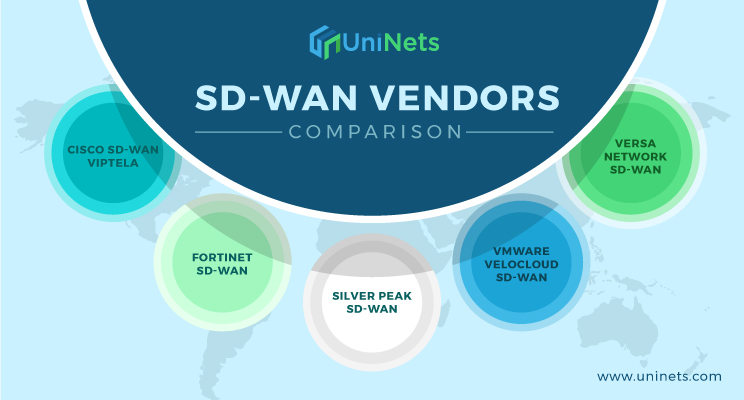
SD-WAN Vendors Comparison: Choosing the ...
16 Apr 2024
CCNP Certification Cost and Exam Fees
12 Apr 2024
Configure Rapid PVST on Cisco Nexus
5 Apr 2024



